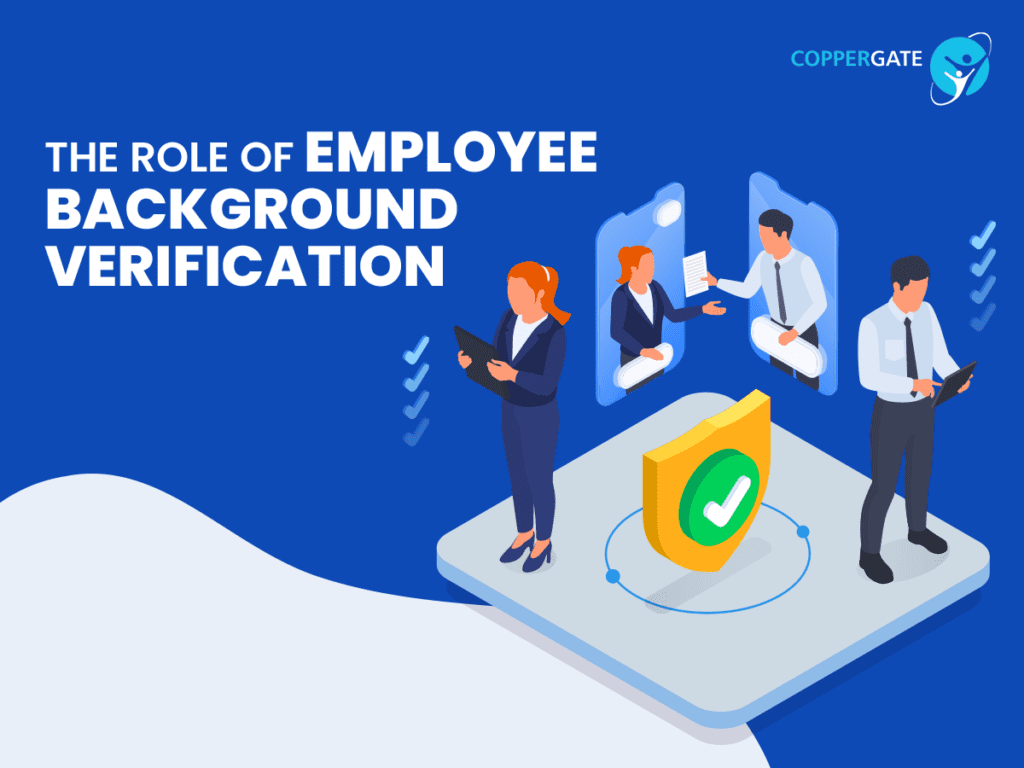Quality hiring is not just about finding individuals with the right skills and experience; it’s also about selecting candidates who align with your company culture, values, and ethical standards. Employee background verification plays a pivotal role in this process by providing employers with valuable insights into a candidate’s past behavior, qualifications, and credibility.
In this comprehensive guide, we’ll delve into the importance of employee background verification and how it ensures quality hiring practices within organizations.
We will look at the following:
- What is Employee Background Verification?
- Importance of Employee Background Verification
- How Do Companies Conduct Background Check?
- Benefits of conducting Background Verification Before Hiring
- Why Should Companies Partner with Recruitment Agencies?
Let’s dive in!
What is Employee Background Verification?
Employee background verification refers to the process of conducting checks on a candidate’s credentials, work history, criminal record, education, and other relevant aspects. It serves as a means for employers to verify the accuracy of information provided by candidates and to assess their suitability for the role. By conducting thorough background checks, organizations can mitigate potential risks associated with hiring unqualified or dishonest individuals.
Importance of Employee Background Verification:
One of the primary objectives of employee background verification is its ability to enhance trust and credibility within the recruitment process. By verifying the accuracy of a candidate’s claims regarding their qualifications and work experience, employers can ensure transparency and integrity in their recruitment practices. This not only fosters a culture of honesty but also mitigates the risk of hiring individuals who may misrepresent themselves or possess dubious credentials.
Other reasons for conducting a thorough background check for employment include:
Risk Mitigation: By uncovering any discrepancies or red flags in a candidate’s background, employee background verification helps mitigate potential risks associated with hiring, such as fraud, misconduct, or workplace violence.
Legal Compliance: Conducting thorough background checks ensures compliance with relevant laws and regulations governing hiring practices, thereby protecting your business from legal liabilities.
Enhanced Hiring Decisions: Armed with verified information about candidates’ backgrounds, employers can make more informed hiring decisions, selecting individuals who are not only qualified but also trustworthy and reliable.
Protection of Company Reputation: Avoiding hiring mistakes and instances of employee misconduct safeguards your company’s reputation and credibility in the eyes of customers, clients, and stakeholders.
How Do Companies Do Background Check?
Companies conduct background checks to verify the accuracy of the information provided by job applicants and to ensure they meet the hiring criteria. But the question arises- How Do Companies Do Background Verification? How do they go about the process? Well, here is the simple explanation… The process typically begins with the applicant’s consent, allowing the company to access various sources of information. This can include criminal records, employment history, educational credentials, credit history, and professional licenses. The company may use third-party screening services to gather this information efficiently and accurately. Once the information is collected, it is reviewed by HR professionals or hiring managers to assess the applicant’s suitability for the position. Depending on the nature of the job and the company’s policies, the depth of the background check may vary. Ultimately, the goal is to make informed hiring decisions and maintain a safe and productive work environment.
Employee background verification process encompasses a range of checks and screenings conducted by employers to validate the information provided by candidates. These checks typically include:
Employment History Verification: Confirming the accuracy of a candidate’s employment history, including dates of employment, job titles, and responsibilities.
Education Verification: Ensuring that a candidate’s educational qualifications, degrees, and certifications are authentic and relevant to the position they’re applying for.
Reference Checks: Contacting previous employers, colleagues, or other references provided by the candidate to gain insights into their work ethic, performance, and character.
Social Media Screening: Reviewing candidates’ social media profiles can offer additional context regarding their behavior, interests, and professional reputation.
Criminal Background Checks: Verifying whether a candidate has a criminal record and assessing any potential risks associated with hiring them.
Credit History Checks: Assessing a candidate’s financial responsibility and trustworthiness, particularly for roles involving financial management or handling sensitive information.
Key Components of Effective Employee Background Verification:
Clear Policies and Procedures: Establishing clear guidelines and procedures for conducting background checks ensures consistency and fairness in the hiring process while complying with legal requirements.
Use of Reliable Screening Tools: Investing in reputable background screening services or software solutions helps streamline the verification process and ensures accurate results.
Confidentiality and Data Security: Safeguarding sensitive candidate information and adhering to data protection regulations are essential to maintaining trust and integrity throughout the background verification process.
Timely Communication: Communicating openly and transparently with candidates about the background verification process fosters trust and reduces anxiety, leading to a positive candidate experience.
Benefits of Employee Background Verification
Implementing employee background verification offers numerous benefits for employers:
-
Improved Hiring Decisions:
By verifying candidates’ backgrounds, employers can make more informed hiring decisions based on factual information rather than assumptions or gut feelings.
-
Reduced Turnover:
Hiring the right candidates from the outset reduces the likelihood of turnover, saving time and resources associated with recruiting and training new employees.
-
Enhanced Reputation:
Demonstrating a commitment to thorough screening and due diligence reflects positively on the company’s reputation, fostering trust with clients, partners, and stakeholders.
-
Increased Employee Morale:
Hiring trustworthy and qualified individuals creates a positive work environment, boosting employee morale and productivity.
-
Enhanced Workplace Safety:
Screening candidates for criminal records helps create a safer work environment by identifying individuals with a history of violence, theft, or other offenses.
How Partnering with a Recruitment Agency Can Help Companies in the Employee Background Verification Process?
Partnering with a recruitment agency can significantly benefit a company, particularly concerning employee background verification for experienced professionals. These agencies specialize in conducting thorough background checks, leveraging their expertise and resources to ensure the integrity and reliability of potential hires.
By collaborating with a reputable recruitment agency, companies can tap into a vast network of qualified candidates who have already undergone rigorous screening processes. This not only saves time and resources but also mitigates the risk of hiring individuals with dubious credentials or a history of misconduct. Moreover, recruitment agencies stay abreast of regulatory requirements and best practices in background verification, ensuring that companies remain compliant with applicable laws and industry standards.
Ultimately, by entrusting the employee background verification process to a reliable recruitment agency, companies can minimize hiring risks, maintain the integrity of their workforce, and foster a safe and conducive work environment for all employees.
At Coppergate we have a strict system in place to verify the credentials of candidates. We leverage technology to conduct efficient and comprehensive background checks for employment. We respect candidates’ privacy and have clear policies with regard to the confidentiality of personal data obtained during the background check.
With years of experience in the industry, we have perfected our methods to meticulously screen candidates, verifying their credentials, employment history, and background. By partnering with us, you can rest assured that you’re working with a team of dedicated professionals committed to delivering accurate and reliable results. Our extensive network and access to cutting-edge technology enable us to conduct thorough checks efficiently, saving you time and resources while mitigating risks associated with hiring.
Trust us to handle your employee verification process with the utmost confidentiality, integrity, and attention to detail, so you can focus on building a strong, capable workforce for your business’s success.
Conclusion:
In conclusion, employee background verification for employment is a vital component of quality hiring practices, offering numerous benefits to organizations across industries. From enhancing trust and credibility to mitigating risks and liabilities, the importance of thorough background checks cannot be overstated. By investing in robust employee background verification processes, organizations can safeguard their reputation, improve hiring decisions, and create a safe and productive work environment for all stakeholders involved. As the recruitment landscape continues to evolve, prioritizing quality hiring through effective background verification remains a cornerstone of success for forward-thinking organizations.




